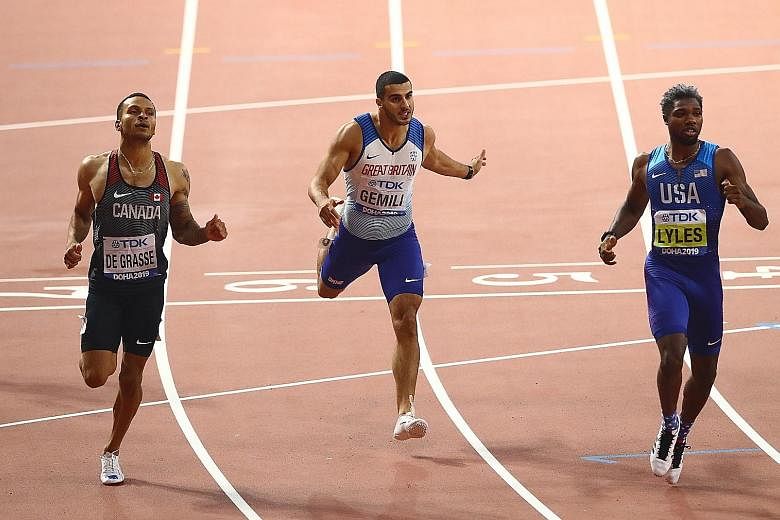LONDON • The British Olympic Association (BOA) has said it has " formally responded" to a legal challenge over sponsorship rights brought by several of its own athletes that could cast a shadow over its preparations for next year's Tokyo Olympics.
The group, which includes Mo Farah, Katarina Johnson-Thompson, Laura Muir and Adam Gemili, are seeking to contest an International Olympic Committee (IOC) rule that bars them from using their name, image or performance in advertising during the Games without the IOC's consent.
A BOA spokesman said that the body was trying to balance the desire for individual athletes to maximise personal sponsorship revenue with the need to preserve and enhance the current system of selling rights collectively.
It met the athletes' representatives last week in an attempt to resolve the dispute, but both parties have been unable to come to an understanding, with 100m and 200m runner Gemili telling the BBC that the rules limiting sponsorship were "ridiculous, unjust and unfair".
He added: "For us, it's about creating the opportunity for every single athlete to go out there and create their own marketing opportunities so they don't have to work a full-time job."
In response, the BOA spokesman said: "However, despite those encouraging conversations, we have been dismayed by the ongoing legal tactics being conducted in the background, which in no way reflects the spirit of the discussions held.
"Therefore, we have been forced to respond fully and robustly to the legal challenge, and have done so in the best interests of all of the athletes we serve.
"We reiterate that it is clearly not in the interest of any party to enter into a protracted legal dispute ahead of the Tokyo 2020 Olympic Games."
The Singapore National Olympic Council (SNOC) also has a similar blackout rule involving its sponsors, with Team Singapore athletes prohibited from using their name for "promotional or advertising purposes" without permission, including mentioning their personal sponsors on social media.
Separately, the BOA has called for the "fullest possible sanctions" to be taken against Russia following the four-year World Anti-Doping Agency (Wada) ban imposed on Monday for the alleged manipulation of doping data.
While Wada has agreed that individual Russian athletes would still be able to compete internationally if they could prove they were not tainted, the BOA has demanded "undeniable proof" that those who travel to Tokyo are clean.
Commission chairman Ben Hawes said yesterday: "Despite previous sanctions, including competing under a neutral flag in the Pyeongchang (Winter Olympics), Russia has continued to deny clean athletes around the world the ability to compete fairly and with any confidence in the systems designed to protect them.
"We echo the calls for stronger, robust and also enforceable sanctions."
The speaker of Russia's upper house of parliament, Valentina Matviyenko, has since suggested that her country could host an alternative to the Olympics, harking back to the late 1920s to 30s when the then Soviet Union held the Spartakiads.
REUTERS, THE GUARDIAN

